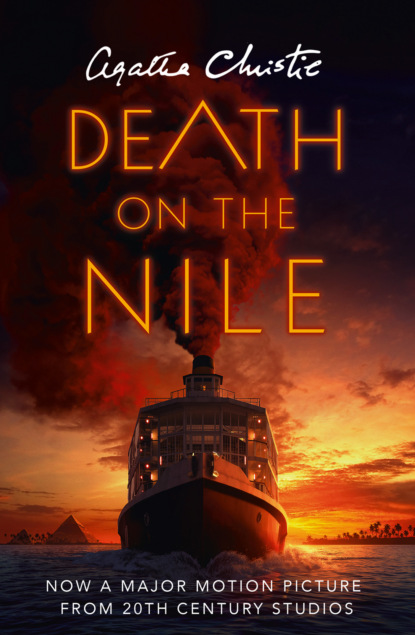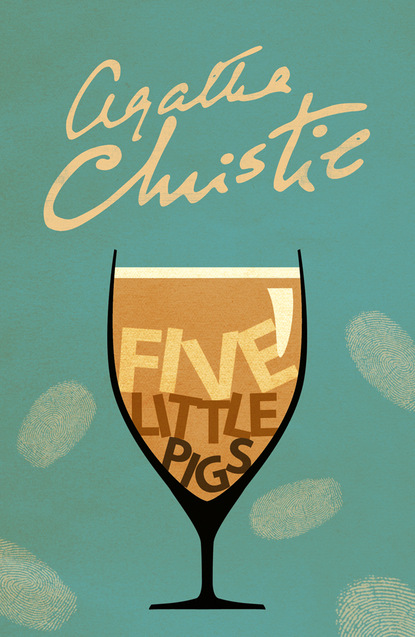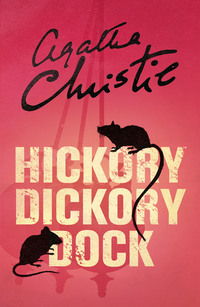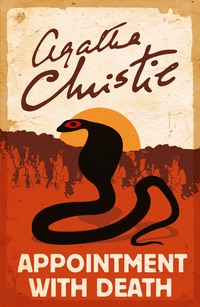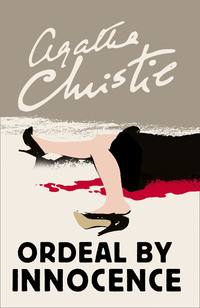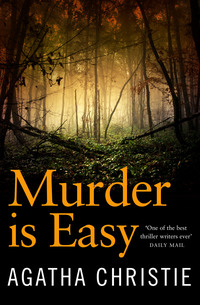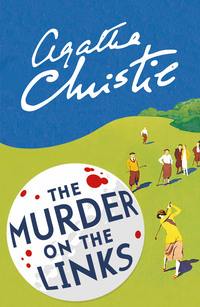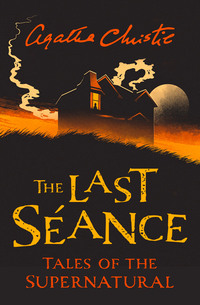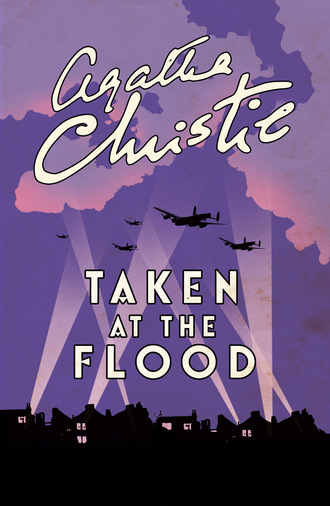
Полная версия
Taken At The Flood
Frances felt terribly sorry for Jeremy and a little guilty about being so unperturbed herself. She took refuge in practicality.
‘Shall we have to sell up everything? Is the firm going smash?’
Jeremy Cloade winced, and she realized she had been too matter-of-fact.
‘My dear,’ she said gently, ‘do tell me. I can’t go on guessing.’
Cloade said stiffly, ‘We went through rather a bad crisis two years ago. Young Williams, you remember, absconded. We had some difficulty getting straight again. Then there were certain complications arising out of the position in the Far East after Singapore—’
She interrupted him.
‘Never mind the whys—they are so unimportant. You were in a jam. And you haven’t been able to snap out of it?’
He said, ‘I relied on Gordon. Gordon would have put things straight.’
She gave a quick impatient sigh.
‘Of course. I don’t want to blame the poor man—after all, it’s only human nature to lose your head about a pretty woman. And why on earth shouldn’t he marry again if he wanted to? But it was unfortunate his being killed in that air raid before he’d settled anything or made a proper will or adjusted his affairs. The truth is that one never believes for a minute, no matter what danger you’re in, that you yourself are going to be killed. The bomb is always going to hit the other person!’
‘Apart from his loss, and I was very fond of Gordon—and proud of him too,’ said Gordon Cloade’s elder brother, ‘his death was a catastrophe for me. It came at a moment—’
He stopped.
‘Shall we be bankrupt?’ Frances asked with intelligent interest.
Jeremy Cloade looked at her almost despairingly. Though she did not realize it, he could have coped much better with tears and alarm. This cool detached practical interest defeated him utterly.
He said harshly, ‘It’s a good deal worse than that…’
He watched her as she sat quite still, thinking over that. He said to himself, ‘In another minute I shall have to tell her. She’ll know what I am… She’ll have to know. Perhaps she won’t believe it at first.’
Frances Cloade sighed and sat up straight in her big armchair.
‘I see,’ she said. ‘Embezzlement. Or if that isn’t the right word, that kind of thing…like young Williams.’
‘Yes, but this time—you don’t understand—I’m responsible. I’ve used trust funds that were committed to my charge. So far, I’ve covered my tracks—’
‘But now it’s all going to come out?’
‘Unless I can get the necessary money—quickly.’
The shame he felt was the worst he had known in his life. How would she take it?
At the moment she was taking it very calmly. But then, he thought, Frances would never make a scene. Never reproach or upbraid.
Her hand to her cheek, she was frowning.
‘It’s so stupid,’ she said, ‘that I haven’t got any money of my own at all…’
He said stiffly, ‘There is your marriage settlement, but—’
She said absently, ‘But I suppose that’s gone too.’
He was silent. Then he said with difficulty, in his dry voice: ‘I’m sorry, Frances. More sorry than I can say. You made a bad bargain.’
She looked up sharply.
‘You said that before. What do you mean by that?’
Jeremy said stiffly:
‘When you were good enough to marry me, you had the right to expect—well, integrity—and a life free from sordid anxieties.’
She was looking at him with complete astonishment.
‘Really, Jeremy! What on earth do you think I married you for?’
He smiled slightly.
‘You have always been a most loyal and devoted wife, my dear. But I can hardly flatter myself that you would have accepted me in—er—different circumstances.’
She stared at him and suddenly burst out laughing.
‘You funny old stick! What a wonderful novelettish mind you must have behind that legal façade! Do you really think that I married you as the price of saving Father from the wolves—or the Stewards of the Jockey Club, et cetera?’
‘You were very fond of your father, Frances.’
‘I was devoted to Daddy! He was terribly attractive and the greatest fun to live with! But I always knew he was a bad hat. And if you think that I’d sell myself to the family solicitor in order to save him from getting what was always coming to him, then you’ve never understood the first thing about me. Never!’
She stared at him. Extraordinary, she thought, to have been married to someone for over twenty years and not have known what was going on in their minds. But how could one know when it was a mind so different from one’s own? A romantic mind, of course, well camouflaged, but essentially romantic. She thought: ‘All those old Stanley Weymans in his bedroom. I might have known from them! The poor idiotic darling!’
Aloud she said:
‘I married you because I was in love with you, of course.’
‘In love with me? But what could you see in me?’
‘If you ask me that, Jeremy, I really don’t know. You were such a change, so different from all Father’s crowd. You never talked about horses for one thing. You’ve no idea how sick I was of horses—and what the odds were likely to be for the Newmarket Cup! You came to dinner one night—do you remember?—and I sat next to you and asked you what bimetallism was, and you told me—really told me! It took the whole of dinner—six courses—we were in funds at the moment and had a French chef!’
‘It must have been extremely boring,’ said Jeremy.
‘It was fascinating! Nobody had ever treated me seriously before. And you were so polite and yet never seemed to look at me or think I was nice or good-looking or anything. It put me on my mettle. I swore I’d make you notice me.’
Jeremy Cloade said grimly…‘I noticed you all right. I went home that evening and didn’t sleep a wink. You had a blue dress with cornflowers…’
There was silence for a moment or two, then Jeremy cleared his throat.
‘Er—all that is a long time ago…’
She came quickly to the rescue of his embarrassment.
‘And we’re now a middle-aged married couple in difficulties, looking for the best way out.’
‘After what you’ve just told me, Frances, it makes it a thousand times worse that this—this disgrace—’
She interrupted him.
‘Let us please get things clear. You are being apologetic because you’ve fallen foul of the law. You may be prosecuted—go to prison.’ (He winced.) ‘I don’t want that to happen. I’ll fight like anything to stop it, but don’t credit me with moral indignation. We’re not a moral family, remember. Father, in spite of his attractiveness, was a bit of a crook. And there was Charles—my cousin. They hushed it up and he wasn’t prosecuted, and they hustled him off to the Colonies. And there was my cousin Gerald—he forged a cheque at Oxford. But he went to fight and got a posthumous V.C. for complete bravery and devotion to his men and superhuman endurance. What I’m trying to say is people are like that—not quite bad or quite good. I don’t suppose I’m particularly straight myself—I have been because there hasn’t been any temptation to be otherwise. But what I have got is plenty of courage and’ (she smiled at him) ‘I’m loyal!’
‘My dear!’ He got up and came over to her. He stooped and put his lips to her hair.
‘And now,’ said Lord Edward Trenton’s daughter, smiling up at him, ‘what are we going to do? Raise money somehow?’
Jeremy’s face stiffened.
‘I don’t see how.’
‘A mortgage on this house. Oh, I see,’ she was quick, ‘that’s been done. I’m stupid. Of course you’ve done all the obvious things. It’s a question then of a touch? Who can we touch? I suppose there’s only one possibility. Gordon’s widow—the dark Rosaleen!’
Jeremy shook his head dubiously.
‘It would have to be a large sum… And it can’t come out of capital. The money’s only in trust for her for her life.’
‘I hadn’t realized that. I thought she had it absolutely. What happens when she dies?’
‘It comes to Gordon’s next of kin. That is to say it is divided between myself, Lionel, Adela, and Maurice’s son, Rowley.’
‘It comes to us…’ said Frances slowly.
Something seemed to pass through the room—a cold air—the shadow of a thought…
Frances said: ‘You didn’t tell me that… I thought she got it for keeps—that she could leave it to any one she liked?’
‘No. By the statute relating to intestacy of 1925…’
It is doubtful whether Frances listened to his explanation. She said when his voice stopped:
‘It hardly matters to us personally. We’ll be dead and buried, long before she’s middle-aged. How old is she? Twenty-five—twenty-six? She’ll probably live to be seventy.’
Jeremy Cloade said doubtfully:
‘We might ask her for a loan—putting it on family grounds? She may be a generous-minded girl—really we know so little of her—’
Frances said: ‘At any rate we have been reasonably nice to her—not catty like Adela. She might respond.’
Her husband said warningly:
‘There must be no hint of—er—real urgency.’
Frances said impatiently: ‘Of course not! The trouble is that it’s not the girl herself we shall have to deal with. She’s completely under the thumb of that brother of hers.’
‘A very unattractive young man,’ said Jeremy Cloade.
Frances’ sudden smile flashed out.
‘Oh, no,’ she said. ‘He’s attractive. Most attractive. Rather unscrupulous, too, I should imagine. But then as far as that goes, I’m unscrupulous too!’
Her smile hardened. She looked up at her husband.
‘We’re not going to be beaten, Jeremy,’ she said. ‘There’s bound to be some way…if I have to rob a bank!’
CHAPTER 3
‘Money!’ said Lynn.
Rowley Cloade nodded. He was a big square young man with a brick-red skin, thoughtful blue eyes and very fair hair. He had a slowness that seemed more purposeful than ingrained. He used deliberation as others use quickness of repartee.
‘Yes,’ he said, ‘everything seems to boil down to money these days.’
‘But I thought farmers had done so well during the war?’
‘Oh, yes—but that doesn’t do you any permanent good. In a year we’ll be back where we were—with wages up, workers unwilling, everybody dissatisfied and nobody knowing where they are. Unless, of course, you can farm in a really big way. Old Gordon knew. That was where he was preparing to come in.’
‘And now—’ Lynn asked.
Rowley grinned.
‘And now Mrs Gordon goes to London and spends a couple of thousand on a nice mink coat.’
‘It’s—it’s wicked!’
‘Oh, no—’ He paused and said: ‘I’d rather like to give you a mink coat, Lynn—’
‘What’s she like, Rowley?’ She wanted to get a contemporary judgment.
‘You’ll see her tonight. At Uncle Lionel’s and Aunt Kathie’s party.’
‘Yes, I know. But I want you to tell me. Mums says she’s half-witted?’
Rowley considered.
‘Well—I shouldn’t say intellect was her strong point. But I think really she only seems half-witted because she’s being so frightfully careful.’
‘Careful? Careful about what?’
‘Oh, just careful. Mainly, I imagine, about her accent—she’s got quite a brogue, you know, or else about the right fork, and any literary allusions that might be flying around.’
‘Then she really is—quite—well, uneducated?’
Rowley grinned.
‘Oh, she’s not a lady, if that’s what you mean. She’s got lovely eyes, and a very good complexion—and I suppose old Gordon fell for that, with her extraordinary air of being quite unsophisticated. I don’t think it’s put on—though of course you never know. She just stands around looking dumb and letting David run her.’
‘David?’
‘That’s the brother. I should say there’s nothing much about sharp practice he doesn’t know!’ Rowley added: ‘He doesn’t like any of us much.’
‘Why should he?’ said Lynn sharply, and added as he looked at her, slightly surprised, ‘I mean you don’t like him.’
‘I certainly don’t. You won’t either. He’s not our sort.’
‘You don’t know who I like, Rowley, or who I don’t! I’ve seen a lot of the world in the last three years. I—I think my outlook has broadened.’
‘You’ve seen more of the world than I have, that’s true.’
He said it quietly—but Lynn looked up sharply.
There had been something—behind those even tones.
He returned her glance squarely, his face unemotional. It had never, Lynn remembered, been easy to know exactly what Rowley was thinking.
What a queer topsy-turvy world it was, thought Lynn. It used to be the man who went to the wars, the woman who stayed at home. But here the positions were reversed.
Of the two young men, Rowley and Johnnie, one had had perforce to stay on the farm. They had tossed for it and Johnnie Vavasour had been the one to go. He had been killed almost at once—in Norway. All through the years of war Rowley had never been more than a mile or two from home.
And she, Lynn, had been to Egypt, to North Africa, to Sicily. She had been under fire more than once.
Here was Lynn Home-from-the-wars, and here was Rowley Stay-at-home.
She wondered, suddenly, if he minded…
She gave a nervous little half laugh. ‘Things seem sometimes a bit upside down, don’t they?’
‘Oh, I don’t know.’ Rowley stared vacantly out over the countryside. ‘Depends.’
‘Rowley,’ she hesitated, ‘did you mind—I mean—Johnnie—’
His cold level gaze threw her back on herself.
‘Let’s leave Johnnie out of it! The war’s over—and I’ve been lucky.’
‘Lucky, you mean’—she paused doubtfully—‘not to have had to—to go?’
‘Wonderful luck, don’t you think so?’ She didn’t know quite how to take that. His voice was smooth with hard edges. He added with a smile, ‘But, of course, you service girls will find it hard to settle down at home.’
She said irritably, ‘Oh, don’t be stupid, Rowley.’
(But why be irritable? Why—unless, because his words touched a raw nerve of truth somewhere.)
‘Oh well,’ said Rowley. ‘I suppose we might as well consider getting married. Unless you’ve changed your mind?’
‘Of course I haven’t changed my mind. Why should I?’
He said vaguely:
‘One never knows.’
‘You mean you think I’m’—Lynn paused—‘different?’
‘Not particularly.’
‘Perhaps you’ve changed your mind?’
‘Oh, no, I’ve not changed. Very little change down on the farm, you know.’
‘All right, then,’ said Lynn—conscious, somehow, of anticlimax, ‘let’s get married. Whenever you like.’
‘June or thereabouts?’
‘Yes.’
They were silent. It was settled. In spite of herself, Lynn felt terribly depressed. Yet Rowley was Rowley—just as he always had been. Affectionate, unemotional, painstakingly given to understatement.
They loved each other. They had always loved each other. They had never talked about their love very much—so why should they begin now?
They would get married in June and live at Long Willows (a nice name, she had always thought) and she would never go away again. Go away, that is to say, in the sense that the words now held for her. The excitement of gangplanks being pulled up, the racing of a ship’s screw, the thrill as an aeroplane became airborne and soared up and over the earth beneath. Watching a strange coastline take form and shape. The smell of hot dust, and paraffin, and garlic—the clatter and gabble of foreign tongues. Strange flowers, red poinsettias rising proudly from a dusty garden… Packing, unpacking—where next?
All that was over. The war was over. Lynn Marchmont had come home. Home is the sailor, home from the sea… But I’m not the same Lynn who went away, she thought.
She looked up and saw Rowley watching her…
CHAPTER 4
Aunt Kathie’s parties were always much the same. They had a rather breathless amateurish quality about them characteristic of the hostess. Dr Cloade had an air of holding irritability in check with difficulty. He was invariably courteous to his guests—but they were conscious of his courtesy being an effort.
In appearance Lionel Cloade was not unlike his brother Jeremy. He was spare and grey-haired—but he had not the lawyer’s imperturbability. His manner was brusque and impatient—and his nervous irritability had affronted many of his patients and blinded them to his actual skill and kindliness. His real interests lay in research and his hobby was the use of medicinal herbs throughout history. He had a precise intellect and found it hard to be patient with his wife’s vagaries.
Though Lynn and Rowley always called Mrs Jeremy Cloade ‘Frances,’ Mrs Lionel Cloade was invariably ‘Aunt Kathie.’ They were fond of her but found her rather ridiculous.
This ‘party’, arranged ostensibly to celebrate Lynn’s home-coming, was merely a family affair.
Aunt Kathie greeted her niece affectionately:
‘So nice and brown you look, my dear. Egypt, I suppose. Did you read the book on the Pyramid prophecies I sent you? So interesting. Really explains everything, don’t you think?’
Lynn was saved from replying by the entrance of Mrs Gordon Cloade and her brother David.
‘This is my niece, Lynn Marchmont, Rosaleen.’
Lynn looked at Gordon Cloade’s widow with decorously veiled curiosity.
Yes, she was lovely, this girl who had married old Gordon Cloade for his money. And it was true what Rowley had said, that she had an air of innocence. Black hair, set in loose waves, Irish blue eyes put in with the smutty finger—half-parted lips.
The rest of her was predominantly expensive. Dress, jewels, manicured hands, fur cape. Quite a good figure, but she didn’t, really, know how to wear expensive clothes. Didn’t wear them as Lynn Marchmont could have worn them, given half a chance! (But you never will have a chance, said a voice in her brain.)
‘How do you do,’ said Rosaleen Cloade.
She turned hesitatingly to the man behind her.
She said: ‘This—this is my brother.’
‘How do you do,’ said David Hunter.
He was a thin young man with dark hair and dark eyes. His face was unhappy and defiant and slightly insolent.
Lynn saw at once why all the Cloades disliked him so much. She had met men of that stamp abroad. Men who were reckless and slightly dangerous. Men whom you couldn’t depend upon. Men who made their own laws and flouted the universe. Men who were worth their weight in gold in a push—and who drove their C.O.s to distraction out of the firing line!
Lynn said conversationally to Rosaleen:
‘And how do you like living at Furrowbank?’
‘I think it’s a wonderful house,’ said Rosaleen.
David Hunter gave a faint sneering laugh.
‘Poor old Gordon did himself well,’ he said. ‘No expense spared.’
It was literally the truth. When Gordon had decided to settle down in Warmsley Vale—or rather had decided to spend a small portion of his busy life there, he had chosen to build. He was too much of an individualist to care for a house that was impregnated with other people’s history.
He had employed a young modern architect and given him a free hand. Half Warmsley Vale thought Furrowbank a dreadful house, disliking its white squareness, its built-in furnishing, its sliding doors, and glass tables and chairs. The only part of it they really admired wholeheartedly were the bathrooms.
There had been awe in Rosaleen’s, ‘It’s a wonderful house.’ David’s laugh made her flush.
‘You’re the returned Wren, aren’t you?’ said David to Lynn.
‘Yes.’
His eyes swept over her appraisingly—and for some reason she flushed.
Aunt Katherine appeared again suddenly. She had a trick of seeming to materialize out of space. Perhaps she had caught the trick of it from many of the spiritualistic séances she attended.
‘Supper,’ she said, rather breathlessly, and added, parentheticaly, ‘I think it’s better than calling it dinner. People don’t expect so much. Everything’s very difficult, isn’t it? Mary Lewis tells me she slips the fishman ten shillings every other week. I think that’s immoral.’
Dr Lionel Cloade was giving his irritable nervous laugh as he talked to Frances Cloade. ‘Oh, come, Frances,’ he said. ‘You can’t expect me to believe you really think that—let’s go in.’
They went into the shabby and rather ugly dining-room. Jeremy and Frances, Lionel and Katherine, Adela, Lynn and Rowley. A family party of Cloades—with two outsiders. For Rosaleen Cloade, though she bore the name, had not become a Cloade as Frances and Katherine had done.
She was the stranger, ill at ease, nervous. And David—David was the outlaw. By necessity, but also by choice. Lynn was thinking these things as she took her place at the table.
There were waves in the air of feeling—a strong electrical current of—what was it? Hate? Could it really be hate?
Something at any rate—destructive.
Lynn thought suddenly, ‘But that’s what’s the matter everywhere. I’ve noticed it ever since I got home. It’s the aftermath war has left. Ill will. Ill feeling. It’s everywhere. On railways and buses and in shops and amongst workers and clerks and even agricultural labourers. And I suppose worse in mines and factories. Ill will. But here it’s more than that. Here it’s particular. It’s meant!’
And she thought, shocked: ‘Do we hate them so much? These strangers who have taken what we think is ours?’
And then—‘No, not yet. We might—but not yet. No, it’s they who hate us.’
It seemed to her so overwhelming a discovery that she sat silent thinking about it and forgetting to talk to David Hunter who was sitting beside her.
Presently he said: ‘Thinking out something?’
His voice was quite pleasant, slightly amused, but she felt conscience-stricken. He might think that she was going out of her way to be ill-mannered.
She said, ‘I’m sorry. I was having thoughts about the state of the world.’
David said coolly, ‘How extremely unoriginal!’
‘Yes, it is rather. We are all so earnest nowadays. And it doesn’t seem to do much good either.’
‘It is usually more practical to wish to do harm. We’ve thought up one or two rather practical gadgets in that line during the last few years—including that pièce de résistance, the Atom Bomb.’
‘That was what I was thinking about—oh, I don’t mean the Atom Bomb. I meant ill will. Definite practical ill will.’
David said calmly:
‘Ill will certainly—but I rather take issue to the word practical. They were more practical about it in the Middle Ages.’
‘How do you mean?’
‘Black magic generally. Ill wishing. Wax figures. Spells at the turn of the moon. Killing off your neighbour’s cattle. Killing off your neighbour himself.’
‘You don’t really believe there was such a thing as black magic?’ asked Lynn incredulously.
‘Perhaps not. But at any rate people did try hard. Nowadays, well—’ He shrugged his shoulders. ‘With all the ill will in the world you and your family can’t do much about Rosaleen and myself, can you?’
Lynn’s head went back with a jerk. Suddenly she was enjoying herself.
‘It’s a little late in the day for that,’ she said politely.
David Hunter laughed. He, too, sounded as though he were enjoying himself.
‘Meaning we’ve got away with the booty? Yes, we’re sitting pretty all right.’
‘And you get a kick out of it!’
‘Out of having a lot of money? I’ll say we do.’
‘I didn’t mean only the money. I meant out of us.’
‘Out of having scored off you? Well, perhaps. You’d all have been pretty smug and complacent about the old boy’s cash. Looked upon it as practically in your pockets already.’



